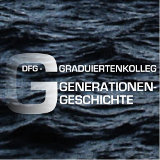Abstract Camiel Oomen
In Germany generation studies have secured the Kriegsjugendgeneration of the First World War a permanent place in history. It concerns the male generation of those who grew up during the First World War, but were too young for active duty. The research hitherto has identified some common features of this Kriegsjugendgeneration of the Weimar Republic, like for example the experience of a lost childhood and youth during the First World War, as well as an appetite for new political concepts after the catastrophic event.
This project deals with the comparative question, whether a similar development can be distinguished in Flanders, respectively the Netherlands which might be likened to the style of political generation of the German Kriegsjugendgeneration. Like with the "generation of 1914" it should be possible to identify elements of an ideal-typical if a self-proclaimed 'political generation' could in fact be recognised in the Flemish part of Belgium and the Netherlands. With this comparative approach the peculiarities of a victorious nation, a defeated and a neutral nation come into focus. It, therefore, allows for an identification of national specifications and a closer examination of transnational exchange but first and foremost it will search out elements of a common European youth culture in the interwar period. Through the research of relevant youth organisations and political groups a catalogue of attitudes, perceptions and activities regarding political core values can be created and used for the comparative approach.
At first glance, the premises for a Kriegsjugendgeneration were indeed given in Flanders, because some historical developments well known from the German case coincided during and after the First World War. The self-awareness of this part of Belgian youths had grown due to the impact of the First World War on Flemish nationalism. Belgium had been occupied and part of the country was directly exposed to front line battles. The Belgian Army lost every tenth man. After the war, Belgium was economically devastated and some large parts of the country were destroyed. In short, like in Germany the War was conceived as a deep rupture in the history of Belgium. The Netherlands, on the other side, were not directly involved in the War, but this does not mean that the country was unaffected by its impact. In the Netherlands, as in other countries, the war was perceived as a cultural crisis, which did have serious repercussions for Dutch society. Modernisation of the economy and society, for example, was already on the way but escalated rapidly as a result of the First World War.
The importance of the German Kriegsjugendgeneration is illustrated by the fact that the German youth organizations experienced a massive inflow of members in the interwar period. In the Netherlands and Belgium an influx of members in youth organizations was also discernible. But it will be shown that youth politics and youth consciousness was primarily dependent on the social organisation and political imagination which in both countries reworked the experience of the Great War in ways incompatible with the national mission of the German young generation who came to prominence in the shadow of war and defeat.

